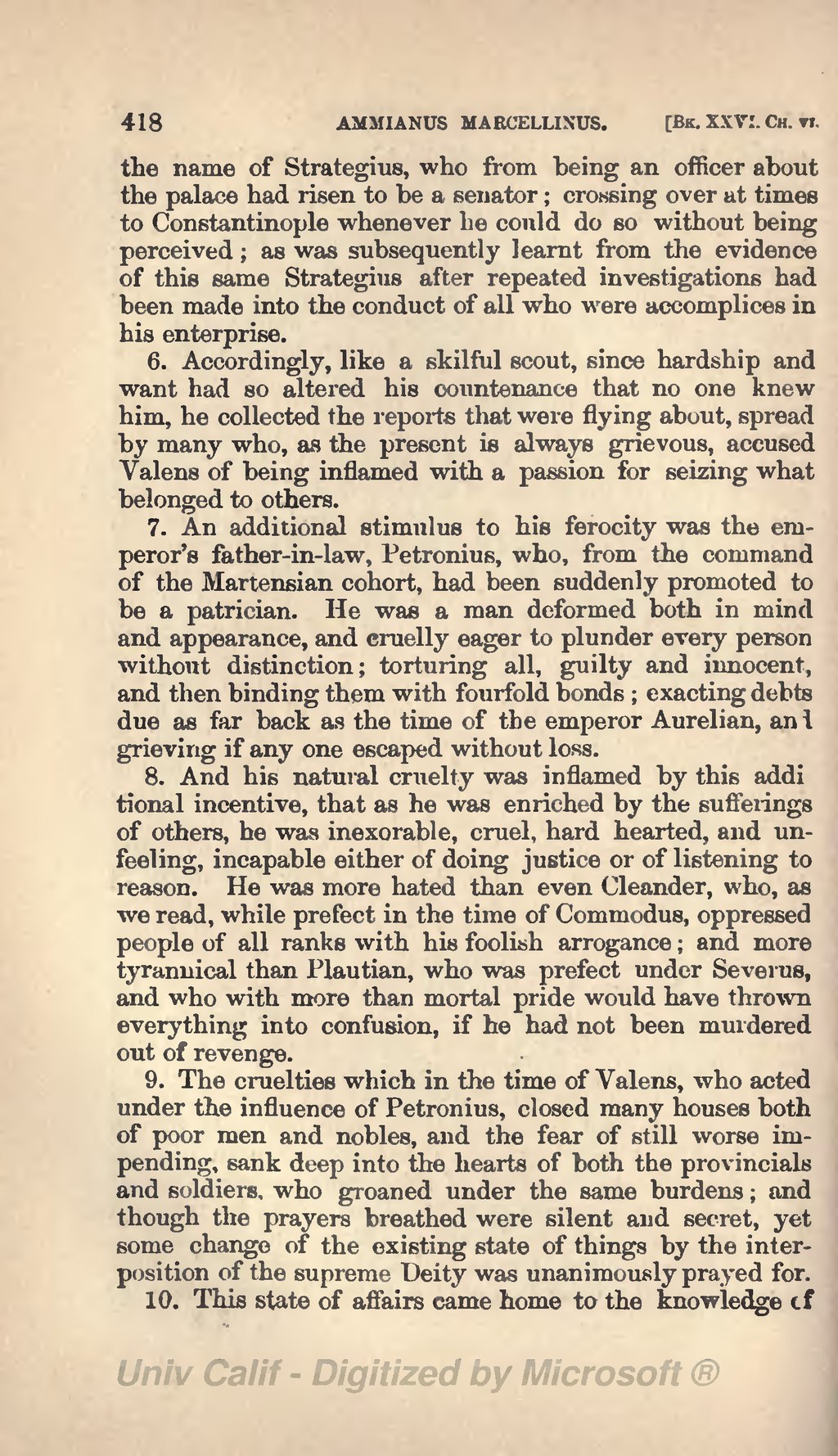name of Strategius, who from being an officer about the palace had risen to be a senator; crossing over at times to Constantinople whenever he could do so without being perceived; as was subsequently learnt from the evidence of this same Strategius after repeated investigations had been made into the conduct of all who were accomplices in his enterprise.
6. Accordingly, like a skilful scout, since hardship and want had so altered his countenance that no one knew him, he collected the reports that were flying about, spread by many who, as the present is always grievous, accused Valens of being inflamed with a passion for seizing what belonged to others.
7. An additional stimulus to his ferocity was the emperor's father-in-law, Petronius, who, from the command of the Martensian cohort, had been suddenly promoted to be a patrician. He was a man deformed both in mind and appearance, and cruelly eager to plunder every person without distinction; torturing all, guilty and innocent, and then binding them with fourfold bonds; exacting debts due as far back as the time of the emperor Aurelian, and grieving if any one escaped without loss.
8. And his natural cruelty was inflamed by this additional incentive, that as he was enriched by the sufferings of others, he was inexorable, cruel, hard hearted, and unfeeling, incapable either of doing justice or of listening to reason. He was more hated than even Cleander, who, as we read, while prefect in the time of Commodus, oppressed people of all ranks with his foolish arrogance; and mere tyrannical than Plautian, who was prefect under Severus, and who with more than mortal pride would have thrown everything into confusion, if he had not been murdered out of revenge.
9. The cruelties which in the time of Valens, who acted under the influence of Petronius, closed many houses both of poor men and nobles, and the fear of still worse impending, sank deep into the hearts of both the provincials and soldiers, who groaned under the same burdens; and though the prayers breathed were silent and secret, yet some change of the existing state of things by the interposition of the supreme Deity was unanimously prayed for.
10. This state of affairs came home to the knowledge of Procopius,
